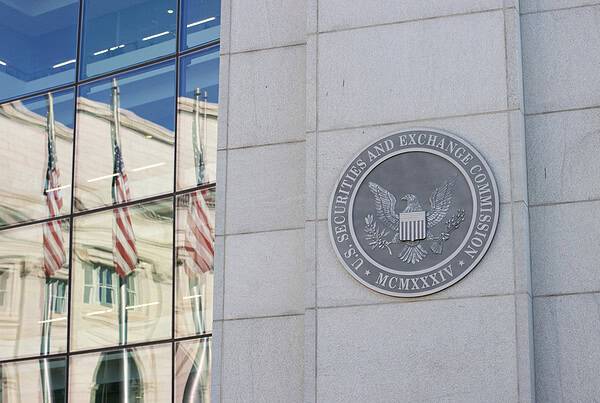
Written by Robert Quinn
Founder & CEO
On February 9th, the Securities and Exchange Commission (“SEC”) proposed sweeping new rules to govern private funds. The comment period on the proposal expires 60 days from the proposal date or 30 days from publication in the Federal Register, whichever is sooner – although many trade bodies have requested an extension to respond, given the heft and complexity of the new proposals.
Some of the proposed rules apply to registered investment advisers and others apply to all advisers.
The proposed rules include:
1. Quarterly Statements
Registered advisers would be required to provide a statement for each private fund to investors within 45 days of calendar quarter end. The following items are required to be included in the statement:
- A detailed accounting of all compensation, fees and other amounts allocated or paid to the adviser (or its related persons), with separate line items for each category of allocation or payment (management, sub-advisory, performance-based compensation, similar fees, or payments).
- A detailed accounting of all fees and expenses paid during the reporting period, with separate line items for each category of expense (organizational, accounting, legal, administration, audit, tax, due diligence, travel).
- For each portfolio investment that paid the adviser (or its related persons) compensation during that quarter, a detailed accounting of such compensation with a line item presenting the amount before and after applying any offsets, rebates, or waivers.
- The fund’s ownership percentage of each portfolio investment as of the end of the reporting period, or if the fund does not have an ownership interest in the portfolio investment, the adviser would list zero percent as the fund’s ownership percentage along with a brief description of the fund’s investment in such portfolio investment.
- Prominent disclosures of the calculation methodologies for all expenses, payments, allocations, rebates, waivers and offsets, including cross-references to the private fund’s organizational and offering documents
- Specific performance information depending on whether the fund is categorized as liquid or illiquid.
An illiquid fund is defined as one that:
- Has a limited life
- Does not continuously raise capital
- Is not required to redeem interests upon an investor’s request
- Has as a predominant operating strategy the return of the proceeds from disposition of investments to investors
- Has limited opportunities, if any, for investors to withdraw before termination of the fund
- Does not routinely acquire (directly or indirectly) as part of its investment strategy market-traded securities and derivative instruments
A fund that does not meet all of the above criteria is considered a liquid fund and will report performance information similar to mutual funds:
- Annual net total returns for each calendar year since inception
- Average annual net total returns over the 1, 5, and 10 calendar year periods
- Cumulative net total return for the current calendar year
2. Audited Financial Statements
All private funds managed by a registered adviser would be required to have an audit from an independent public accountant for each private fund they advise at least annually and upon liquidation. Audited financial statements must be distributed to investors “promptly” upon completion of the audit, although it is likely to be within 120 days of the end of the fund’s fiscal year for those private fund managers relying on the Custody Rule 206(4)-2.
Further, the auditor is required to notify the SEC’s Division of Examinations upon the auditor’s termination or issuance of a modified opinion.
3. Annual Reviews
Registered advisers will now have to complete their annual compliance reviews in writing, retained under the books and records requirements, and subject to SEC inspection.
4. Adviser-led Secondaries
For registered advisers engaging in an adviser-led secondary transaction for a private fund, the adviser must deliver to all investors a fairness opinion prepared by an independent opinion provider and a summary of any material relationships between the adviser and provider.
5. Prohibited Practices
The SEC proposes to prohibit both registered and unregistered advisers to private funds from the following:
- Borrowing from a private fund
- Charging or allocating other than on a pro rata basis
- Preferential disclosure of information
- Preferential redemption rights, unless under certain circumstances and disclosure in advance and annually
- Charging for services not provided
- Charging for SEC examinations or other regulatory investigations
- Charging for compliance expenses
- Seeking reimbursement, indemnification, or limitation of its liability by the private fund or its investors for a breach of fiduciary duty, willful misfeasance, bad faith, negligence, or recklessness in providing services to the private fund
- Reducing the amount of any adviser clawback by actual, potential, or hypothetical taxes applicable to the adviser
The focus on private fund advisers is a consistent theme. In June 2020, the SEC issued “Observations from Examinations of Investment Advisers Managing Private Funds” where the regulator expressed concerns on fees and expenses, a topic that has been a priority for several years, and conflicts of interest. These included conflicts related to:
- Allocation of investments
- Multiple clients investing in the same portfolio company
- Financial relationships between investors or clients and the adviser
- Preferential liquidity rights
- Adviser interests in recommended investments
- Co-investments
- Service providers where the adviser had an interest
- Fund restructurings
- Cross-transactions
The SEC further highlighted deficiencies in January 2022 where the regulator reiterated an adviser’s fiduciary duty to their clients. They specifically identified conduct inconsistent with disclosures and misleading disclosures regarding performance, inaccurate performance calculations and misleading statements regarding awards and other claims.
So, while some in the industry may be surprised by the volume of proposed rules in the past month, the rules are clearly a continuation of the SEC priorities – addressing what they see as areas where significant improvement is needed.
Click for more on our SEC Compliance services.











